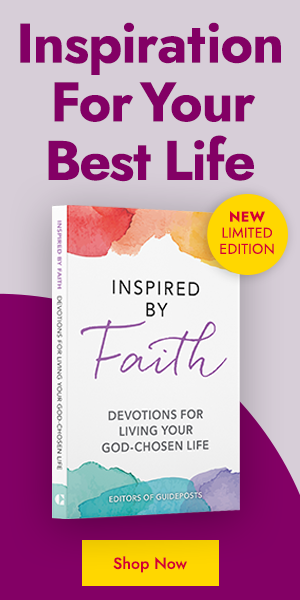Joshua Yamamoto is a cardiologist and with his M.D. wife Kristin Thomas has written a book with the hope-filled title, You Can Prevent a Stroke. I’m big fan of hope and figured it’d be worth calling Joshua to get his advice. It’s nice to think that a stroke is something that can be avoided.
He knew of Guideposts, and reminded me during our chat that our Creator has endowed us not only with bodies that naturally age but also with the intelligence to embrace the modern medicine to help.
“I used to worry that all of my 80-year-old patients were going to die during my career,” he said. “Now I know that most will not. So, if you’re going to be alive, you may as well avoid heart failure and brain failure. If you are going to live, live well.”
To buy a copy of Rick’s latest book, Prayer Works, click here.
He is very clear about the questions you should ask your doctor. If you’re like me, you forget what you want to say. It’s worth writing your questions down or copying them on your phone. Here they are:
1) What’s the health of my heart?
Maybe you need an echocardiogram, an ultrasound of the heart. “Painless, quick, harmless, non-invasive and covered by Medicare,” as he says. Even better, a stress test to show how your heart works when you’re exercising.
2) What’s the health of my arteries?
Here’s another test you might need, a high-resolution carotid ultrasound. “If your carotid arteries are full of gunk—known as plaque,” he writes, “the gunk and blood clots can break off and get into your brain. A stroke.” Knowing what those arteries are like will help in your health plan.
3) Is my heart beating regularly and fast enough?
My resting heartbeat is pretty slow. I used to be proud of it. But I’ve learned that a slow or irregular heartbeat could lead to problems. It may mean that my heart is not pumping enough blood to my brain. I’ve worn a heart monitor before—a bulky thing—but Dr. Yamamoto told me there are much smaller devices, a little microchip about the size of a paper clip that can be injected under the skin.
The point is, we all age. It can’t be avoided. “Some aspects of aging you can influence on your own,” he says. “Some you cannot, at least not without your doctor’s help.” That means facing up to your pride.
4) Should I be taking a pill?
Once again, this can be an issue of pride. We brag about eating right, not smoking, getting exercise…but there can come a time when a pill makes a huge difference and is necessary to fight high blood pressure or high cholesterol or prevent clots. (Yep, I take a few pills.)
I’m pretty darn close to Medicare age and statistics would say I’m good for at least another 20 years. (That’s certainly more than the biblical “three-score and ten.”) I’m grateful for docs like Yamamoto and Thomas who can help me make the most of those years ahead. Here’s a few prayers of thanks for all the kind, helpful, hopeful doctors.




